John Leiber, Aaron Richardson on their 2022 run for state treasurer of Wisconsin
A lawyer and mayor share why they're seeking an often overlooked statewide office that has responsibilities related to fiscal matters for public lands and investments, school funding and other financial assets.
September 13, 2022
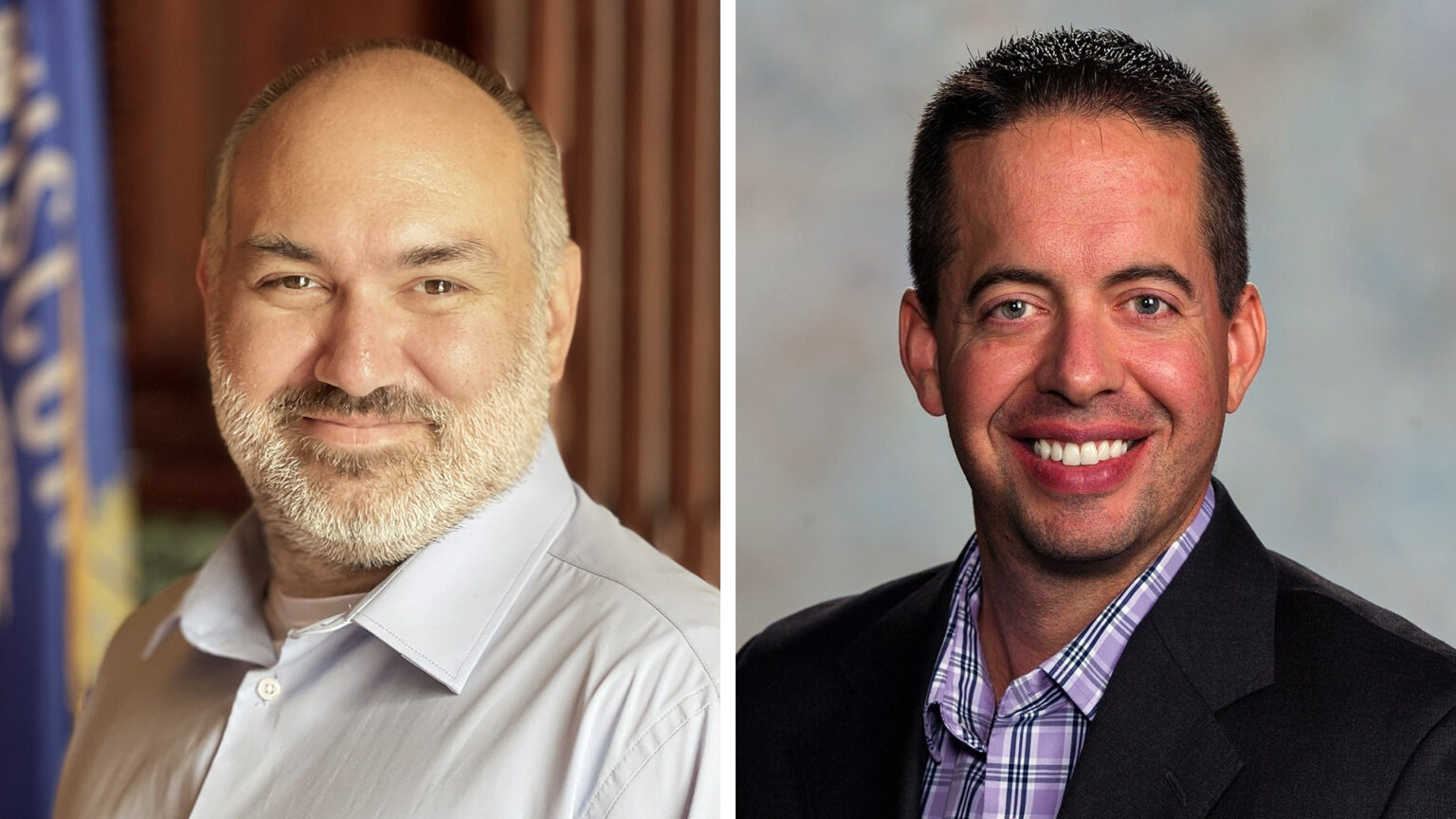
In Wisconsin's 2022 election for state treasurer, lawyer John Leiber, left, is the Republican nominee, and Fitchburg Mayor Aaron Richardson, right, is the Democratic nominee.(Credit: Courtesy of John Leiber and Aaron Richardson)
In the 2022 race for Wisconsin state treasurer, voters will choose between a Republican real estate attorney based in one Madison suburb and the Democratic mayor of a different Madison suburb.
John Leiber is the lawyer and Aaron Richardson is the mayor of Fitchburg. In their primary elections, Leiber trounced his opponent – the southeast regional director for Republican Sen. Ron Johnson – with 77% of the vote, while Richardson earned 38% of the vote while his opponents – a Wausau radiologist and an alderman from West Allis – who earned 36% and 25% respectively.
In the November general election – which is being greatly overshadowed by the statewide elections for governor and U.S. Senate – pits Leiber, 45, a Republican who has no interest in expanding the duties of treasurer, against Richardson, 46, a Democrat who hopes to grow the office’s role by creating new programs.
According to the Office of the State Treasurer’s website, the position “serves as the state’s fiscal watchdog, oversees investments and fosters economic security for the citizens of Wisconsin in a financially sustainable manner.” More specifically, the officeholder is the chairperson of the Board of Commissioners of Public Lands, manages its State Trust Fund Loan Program and distributes funding to school libraries through the Common School Fund, among other duties, including overseeing the state’s Unclaimed Property program.
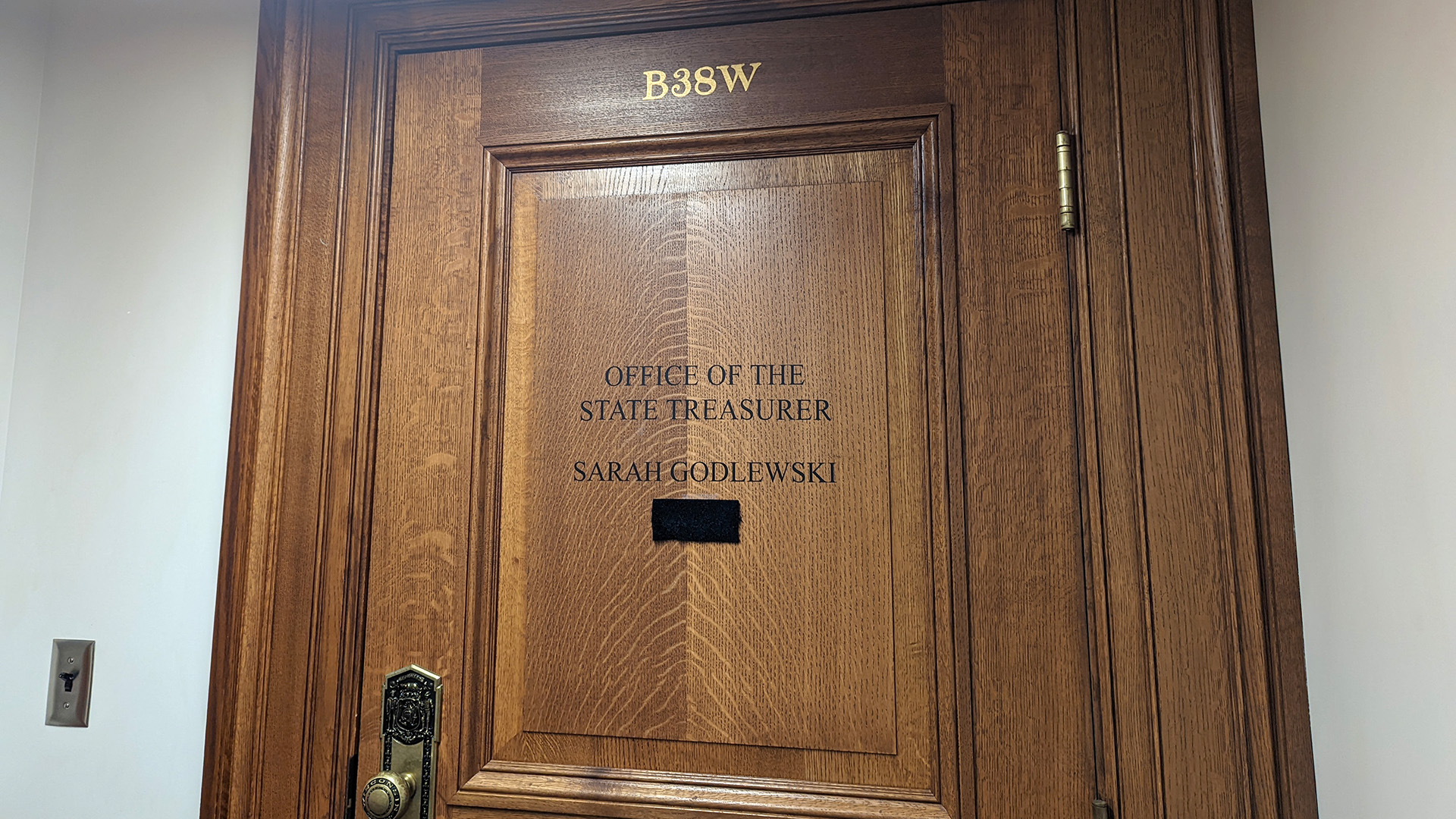
The Office of the State Treasurer of Wisconsin is located in the basement of the Wisconsin State Capitol in Madison. State Treasurer Sarah Godlewski was elected in 2018 and ran in the 2022 Democratic primary for U.S. Senate before withdrawing from the race. She is not running for re-election as state treasurer. (Credit: Steven Potter / PBS Wisconsin)
Here & Now asked each of the candidates about why they’re qualified to be state treasurer and how they would handle the job, if elected.
Why do you want to be Wisconsin state treasurer and what qualifies you for the role?
Leiber: I want to be treasurer because we need somebody in that office who is actually going to focus on the duties of the treasurer. I think in the past you had treasurers who were really just using it as a stepping stone to run for a different office or just advocating against it. I think we need somebody who’s going to focus on being a responsible member of the Board of Commissioners of Public Lands and seek to increase the state trust fund loan program that belongs to all Wisconsinites.
That said, I’m an attorney. I do have some estate planning experience. And I’ve also worked on boards before. I was on the housing authority in Racine County, and I was also the president of the Parks and Recreation Commission. So I understand the role of a board member, which means you have to work with the other board members to come to an agreement on how to get things done. It’s different from being just an executive where you can tell people what to do. You have to work with other people and find an agreement.
Richardson: I’ve loved my time as Fitchburg mayor … but it is part time. And so I do have to also work a 40-hour week job in the school district, which I enjoy. But it’s tough. There are some really long weeks and I’m really looking to focus on something that can help on a broader perspective that helps statewide. It interests me a lot to be involved in the financial side of the state. Some of the treasurer’s roles have been kind of taken away over the years, but I do feel like I’m uniquely qualified for the role and to have someone in this role that cares about education [and] that has experience with big budgets and can not only do all those responsibilities, but I would be a great resource for Gov. Tony Evers as well.
I’ve got a business degree from UW-Green Bay, an MBA, and I worked in the business world for 16 years, mainly in marketing roles at credit unions and insurance companies. So I really have a strong financial background.
What do you see as the most significant duties of the state treasurer?
Richardson: I think the most important thing is helping distribute funds through the State Common Fund – disturbing those monies to school districts throughout the state for the libraries. That’s the most important thing that they do by far. But the Board of Public Lands is also incredibly important. But to me the most important thing is distributing those monies. There is also another program through that fund that provides money to municipalities throughout the state to do various projects, mainly infrastructure. The treasurer is also responsible for the Unclaimed Property program, and so that’s something that they run and that’s important to make sure that if people are owed money that they know about that so they can get that money.
Leiber: I think, without a doubt, it’s being on the Board of Commissioners of Public Lands, which oversees a $1.4 billion trust fund along with the municipal loan program. I think we need somebody who understands how investments work and is able to look into it and provide proper oversight for the agency. If you just have somebody who is just going to be a rubber stamp, then I don’t think the people of Wisconsin are really getting their value out of the office.
Is there anything that the state treasurer’s office isn’t doing that you think should maybe come under the authority of that office?
Leiber: No and that’s probably where I differ from my opponent. I don’t think the treasurer’s office needs to be expanded. The office has been reduced over the years and some responsibilities have been moved to other agencies that can handle them. And I haven’t heard of any problems with how other agencies have been handling those responsibilities that used to be in the treasurer’s office. It doesn’t make sense to expand the government because we’ve been trying to reduce this office for years. So, I want to keep the office but I believe in small government. I don’t think we need to increase the staff or the office or the responsibilities. It just doesn’t make financial sense.
Richardson: There are some different financial responsibilities that other treasurers have in other states that I think the treasurer of Wisconsin should have again that were stripped from them. A big one for me is adding a program that other states have – it’s called the ABLE [Achieving a Better Life Experience] program. It’s a program that helps people with disabilities be more financially secure and independent.
The state treasurer is the chairperson of the Board of Commissioners of Public Lands. What does that work entail and how does it impact future generations?
Richardson: It’s about making sure that we’re protecting our public lands. But also there might be some things that don’t make sense for us to hold on to anymore. Maybe it’s a building or something like that, if we sold, we could use those proceeds better somewhere else, whether it’s buying different land somewhere or investing in some of the other public lands we already have. One thing we saw during the pandemic was how important it was for people to get outside and have a place that they could go to where they could walk on or run or whatever they might want to do. The use of our parks and open space public lands just exploded and I think that it’s staying high, which is fantastic. So making sure that those opportunities are available and expanding those options when possible.
[This role] is really about finding more lands to protect and making sure that the ones we have, have those protections long term, so that generations have the ability to use those properties. Whether it’s parks like Devils Lake State Park or smaller forests, there’s a lot of land that we own as a state. And so it’s really just making sure that we’re managing it appropriately and that we’re looking for even more land to save and protect so that future generations can continue using those.
Leiber: There are board meetings that are twice or twice a month. Those don’t take long. But as someone who has been chair of a board before, there’s more to being a board member than just showing up at meetings and listening to a presentation. You have to do the research ahead of time. You have to prepare and you have to work on proposals or you have ideas. You have to put some work into that. So, the duties really are about research. It’s kind of what you want to make of it. You can do the bare minimum, but that’s not what I want to do. I want to do an actual good job, which is going to require more time than that. So I would anticipate at least several hours a week, every week going over the materials, talking with other people, looking at alternatives and providing proper oversight to the board.”
This board has been around since our state constitution in 1848. That’s 174 years. So it’s already affected future generations – we are the future generations that the state founders were anticipating when they created this board. So I’d like to keep that ongoing for at least another 174 years. The trust funds are grown by the sale of state land and it brings in fines and fees from around the state as well to increase the principal and that distributes aid to school libraries, mostly for technology improvements. So the benefit is the larger the fund gets, the better these investment performances, the more money we have to give to the state school districts.
The Office of State Treasurer was on the chopping block back in the spring of 2018. That’s when there was a constitutional amendment asking voters if they wanted to eliminate the position. Voters chose to reject that amendment and retain the office. So that said, why does Wisconsin need a state treasurer?
Leiber: It’s not so much whether we need it or not. It’s whether the voters wanted it and the voters signaled that they want to keep it – I think it was 61% in favor of it. What they didn’t say, though, was that they wanted to expand the office of the treasurer. So I don’t see the call for growing the office make any sense. I want to keep it the way it is. I don’t think we need to grow the office. If the voters want a treasurer, then I think they deserve a treasurer who actually wants the job and understands what the role entails.
Richardson: I think [current State Treasurer] Sarah Godlewski did a great job at proving the value of this role. She’s done a lot of things that I want to continue. One of those is a program to help people make improvements to their home or make payments on their home or if they’re falling behind. I think that’s something that’s incredibly important. I’d like to think that the governor would use my expertise in putting that budget together because I know what it’s like to run a city in the state and the challenges that we face and the challenges that our residents face. And so I like to think that, you know, my role would also be to be that resource for Gov. Evers.
The Unclaimed Property program is perhaps the most popular job of the state treasurer because it returns money to people that they might have lost, forgotten or never knew about. Would you make any changes to this program?
Richardson: We will make sure people are getting the money they are owed back. But one change I would like is to add an option where if you are owed money, you could donate it to one of a handful of charities [for] the environment, education, seniors, veterans and groups like that. We could make it real easy for individuals to say, “You know what, I didn’t even know that I was supposed to get this $40. Let’s give it to this group that is helping the environment.”
Leiber: By law, the treasurer is just supposed to promote it, but there’s no money in the budget to do that — and the Department of Revenue actually runs that. So, right now, it’s just kind of a leftover responsibility. I don’t really know how much the treasurer can possibly do with it other than going to places and speaking about it. I don’t think it’s really a major part of the job at this point. If it was, there would be some sort of money attached to it. I haven’t heard of any problems that the Department of Revenue has with running the program. So I don’t know why we’d want to move it back to the treasurer’s office at this point.
The general election for state treasurer of Wisconsin – as well as elections for governor, lieutenant governor, secretary of state, the U.S. Senate and U.S. House, and legislative offices around the state – will be held Tuesday, Nov. 8. More information can be found at Wisconsin Vote.
 Passport
Passport




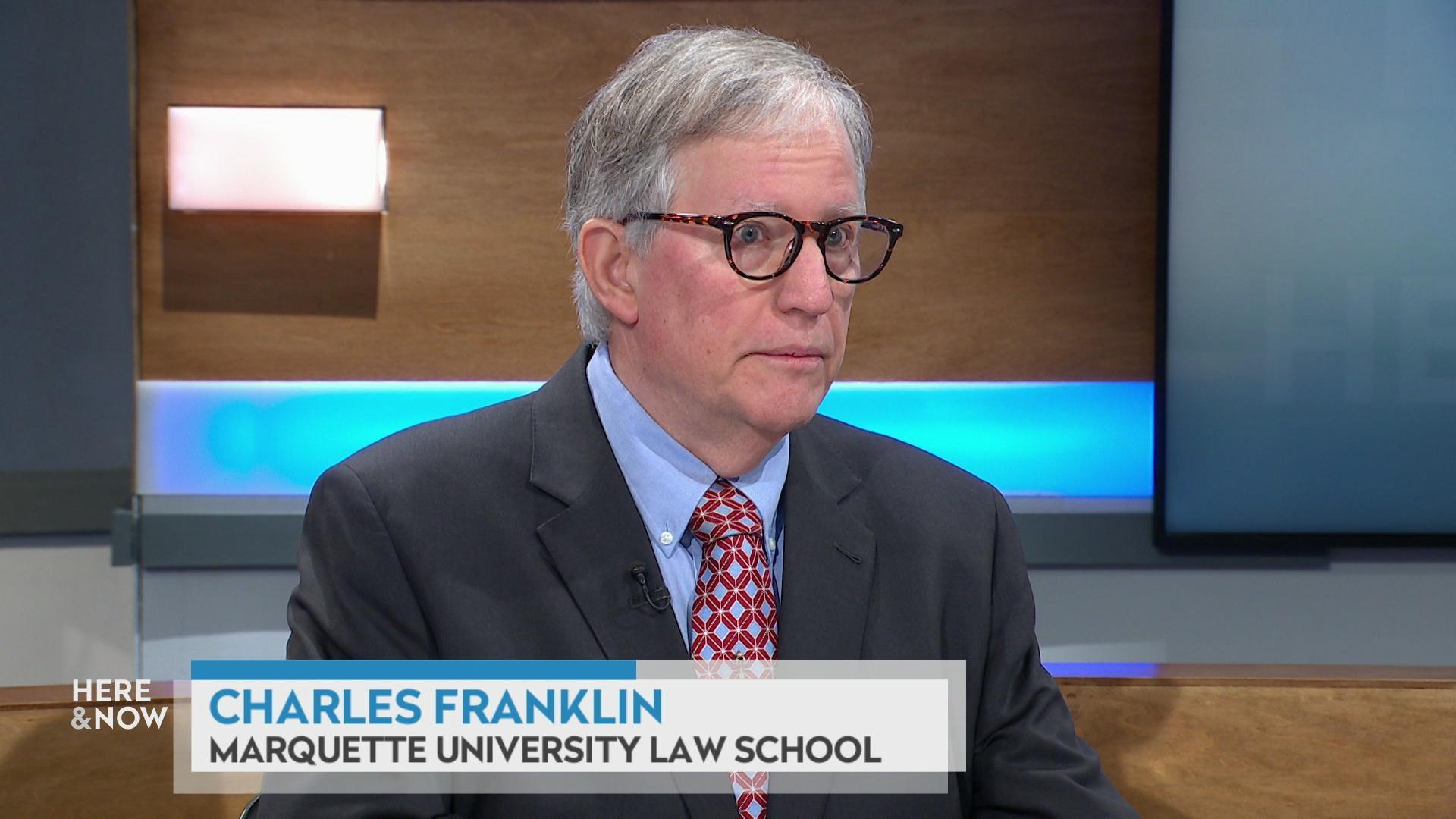

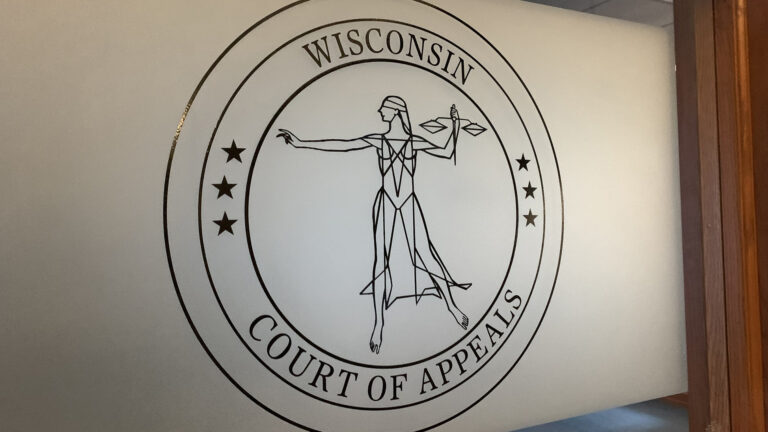
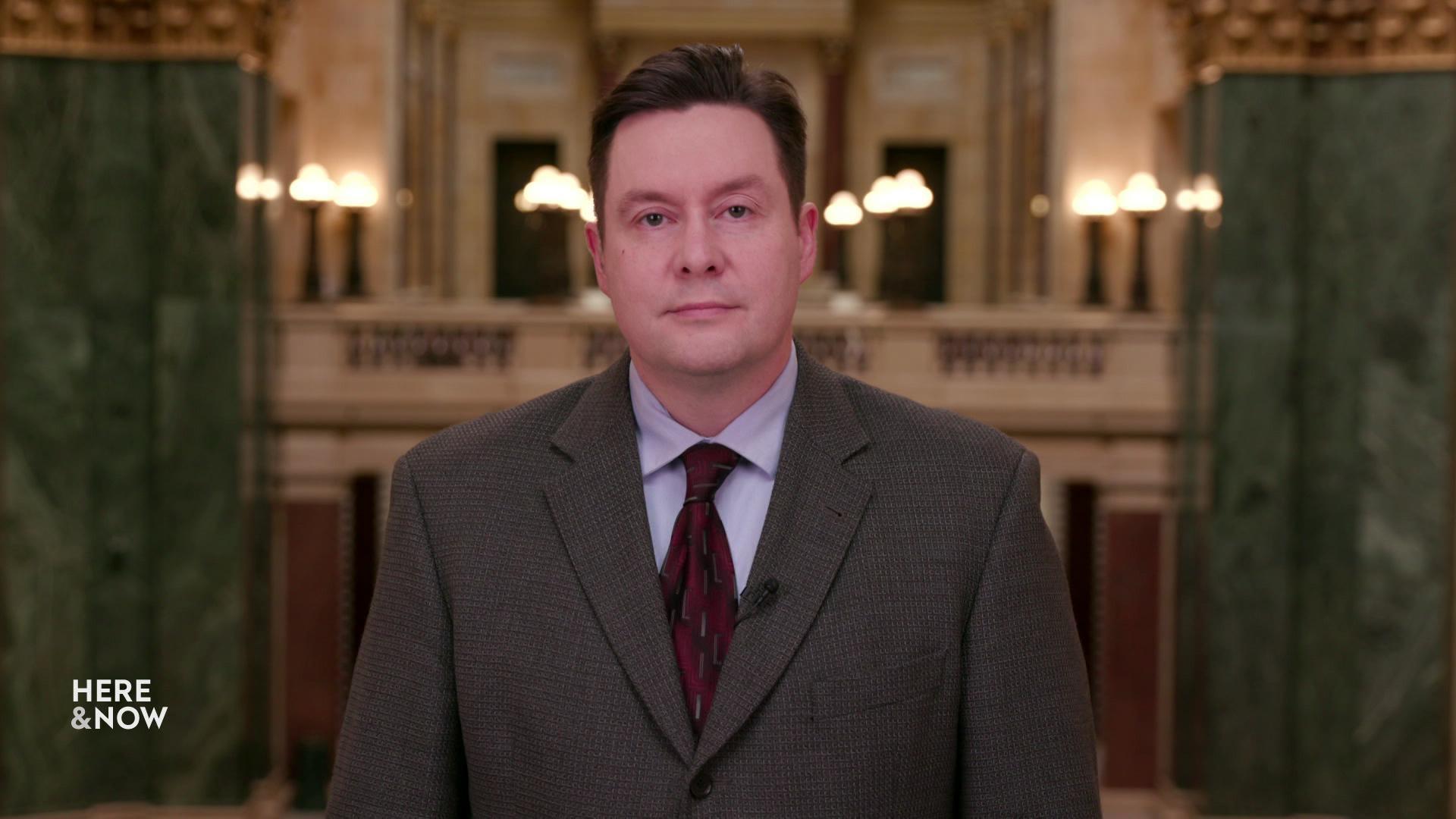
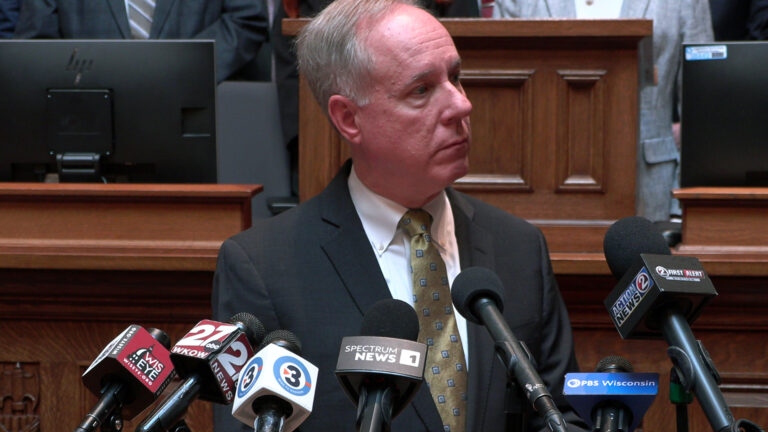


Follow Us